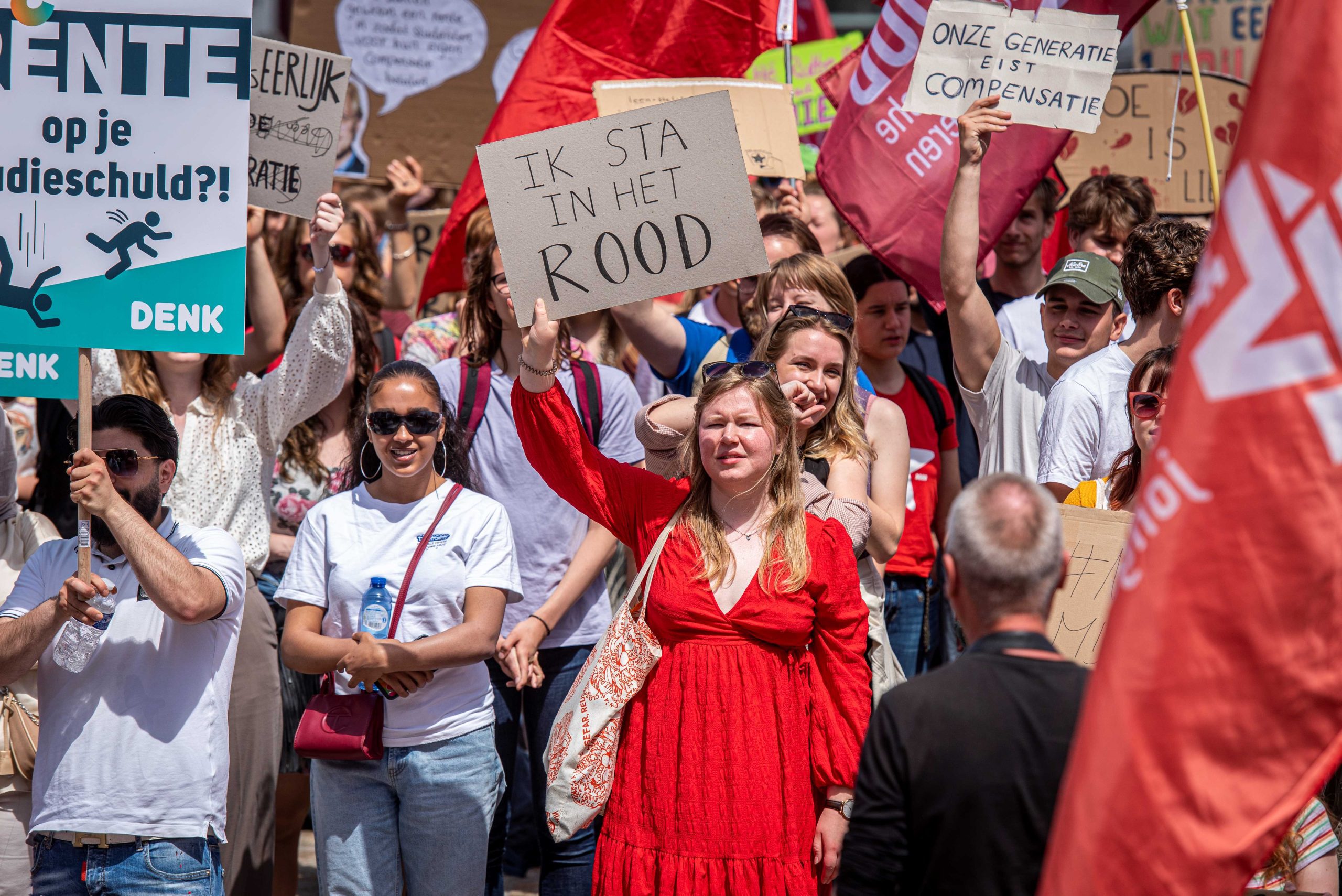The interest rate on study loans for the ‘bad luck generation’ should remain 0 per cent, SP and D66 think. To pay for that, they want to raise taxes on flowers and tap water.
Students during a protest in 2022. The sign in the middle reads: I am in the red. (Photo: LSVb)
From 1 January, (former) students in Dutch higher education will owe 2.56 per cent rather than 0.46 per cent interest on their student loans. Repayers with an average debt will pay thousands of euros more as a result. “This rising interest rate hits loan system students the hardest”, write political parties D66 and SP in an amendment.
That is why they want to fix the interest rate at zero per cent for students who studied until 2024. This concerns all students who were studying under the loan system, who are called the bad luck generation, regardless of how long they did so.
Tap water and horticulture
The 500 million euros they say the measure will cost annually, the two parties want to pay for by increasing taxes on tap water and flowers and plants.
Major consumers of water now pay no tax above a consumption of 300 cubic metres per year. If that benefit would expire in 2025, it would save EUR 100 million a year.
Abolishing the reduced tax rate on ornamental horticulture would save EUR 400 million. Ornamental horticulture has been under the low rate of 9 per cent since 1975 – a bouquet of flowers was supposed to be affordable for everyone – but rises to 21 per cent in D66 and SP’s plans.
Protest
Whether the initiative will pass is not yet certain. The parties are counting on support from at least the GroenLinks-PvdA party. According to party leader Frans Timmermans, the interest rate on student debt should be frozen at the current level of 0.46 per cent. The PVV party may also be appeaseable. It earlier voted in favour of a motion to permanently set the interest rate on student loans at 0 per cent. But that motion did not make it.
MP Pieter Omtzigt is also concerned about the high interest rate. On Monday, he tabled an amendment to cut tax benefits for expats. He wants to use all the revenue from this (194 million euros) to lower the interest rate on study debts of ‘bad luck students’. In doing so, he did not mention a percentage.
There is a chance that interest rates will rise further in the coming years. Student organisations find this inexplicable and argue for an interest ceiling. The National Student Union (LSVb) and FNV Young & United are organising a protest at the House of Representatives on Wednesday.
HOP/Peer van Tetterode
Do you have a question or comment about this article?
redactie@hogeronderwijspersbureau.nl


Comments are closed.